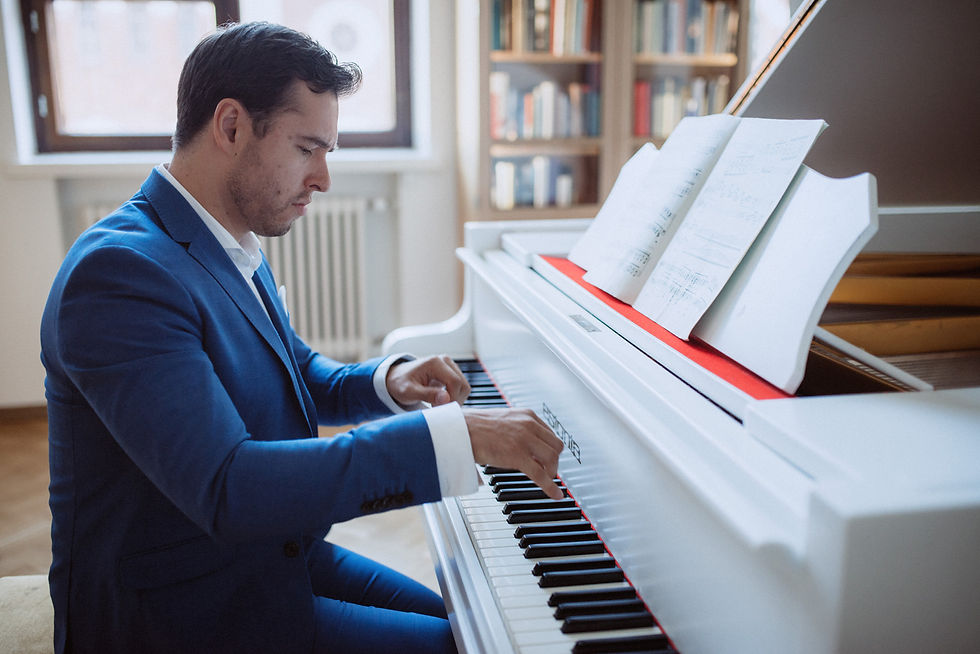10 Principles Of Efficient Practice
- mneverovas
- Jun 24, 2022
- 2 min read
Practice doesn't make you better. Efficient practice makes you better.

1 .Quality over quantity 🔑
If you are not maintaining a high level of care and concentration, allowing mistakes to go uncorrected, playing incorrect rhythms and so on, then simply you are practicing to become a worse player. Careful and quality practice makes progress. Remember to take breaks - most of people find it difficult to maintain intense concentration for long period of times.
2. Critical listening 👂
Listen carefully and critically to everything you play. Ask yourself: was my fingering correct, was my sound good, was dynamic right? During practice, you should be in continual conversation with yourself. Be teacher to yourself - try to imagine what your teacher would say about your playing.
3. Slow practice 🐌
Practice playing slowly rather than quickly and listen with critical ear.
4. Read the score, read the score and read the score 🎼
Make sure you are observing all the markings on the music (articulation, dynamics, fingering, phrasing, etc).
5. Correct your mistakes immediately 😉
Practice a short section at a time and fake it until you make it
6. Study difficult parts first 1️⃣
Working on difficult sections should always be primary focus and you should know how to breakdown pieces and sections into small manageable units.
7. Use a metronome ⏱
Remember, music is art in time, so misreading the rhythms is big No.
8. Think about the character of music 🎶
Every piece tells a story. Think what that composition tells you.
9. Record and perform to yourself 🎥
Occasionally try to play without stopping and ignoring mistakes.
10. Mental practice 💭
Study the piece away from piano. Try to hear it in your head, think about dynamics, character, fingering.



Comentários